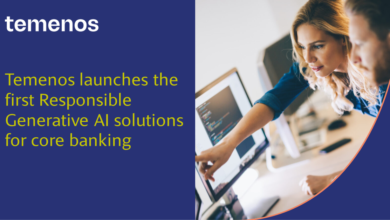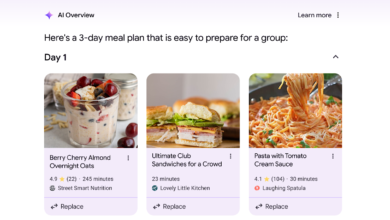BFFs, or soon-to-be frenemies? – Computerworld

Microsoft and OpenAI are joined at the hip, with Microsoft investing $13 billion in the pioneering generative AI (genAI) company; holding a seat on its board; and using OpenAI’s ChatGPT technology in its Copilot tool (now built into virtually its entire product line).
And that’s just the beginning of the relationship. The tag team of Microsoft President Brad Smith and OpenAI CEO Sam Altman have lobbied elected leaders to fend off federal AI regulations, wined and dined members of Congress, and become their go-to experts about everything AI.
When Altman was briefly ousted as OpenAI chairman, Microsoft CEO Satya Nadella lobbied behind the scenes to get him reinstated. And he was.
The US, UK, and European Union are all worried enough about the tight Microsoft-OpenAI connection that they’re investigating it for possible anti-trust violations. Elon Musk is suing OpenAI, claiming the company was founded to share its AI with the world by open sourcing its technologies, which it abandoned thanks to the relationship with Microsoft. His lawsuit claims, “OpenAI has been transformed into a closed-source de facto subsidiary of the largest technology company, Microsoft.”
Despite all that, it’s becoming clear that the relationship is more fraught than it seems, with more than the usual behind-the-scenes sniping going on. OpenAI has tried to steal Microsoft customers and is preparing for life after its relationship with Microsoft ends. Microsoft, for its part, is investing billions into genAI technology that can compete against OpenAI, and Microsoft CEO Satya Nadella seems to believe he’s already got all the OpenAI tech he wants under lock and key.
More and more, the two companies seem more like frenemies than BFFs. Here’s why, and what that means.
The legal relationship: it’s complicated
The very thing that binds Microsoft and OpenAI is the thing that may tear them apart — their legal relationship. OpenAI was founded in 2015 as a nonprofit company. The founders claimed they were worried that the profit motive would prevent AI from being used for good and could become a threat to humanity if developed unchecked. The founders, including Altman and Musk among others, initially funded OpenAI out of their own pockets, with a primary goal to make sure AI would be “used in the way that is most likely to benefit humanity as a whole, unconstrained by a need to generate financial return.”
When it became clear that potentially trillions of dollars could be made off AI, that altruism went out the window. The founders turned OpenAI into a “capped” for-profit company. I won’t go into the confusing details of what that means and the incomprehensible corporate structure that was created as a result. What you need to know is that it allowed OpenAI to open itself up to investors, it lets investors use and profit from OpenAI technologies — and it lets OpenAI directly compete with those investors.
If that’s not odd enough, OpenAI’s founding agreement remained in place. It says that if the company’s technology ever evolved to artificial general intelligence (AGI) — a system that thinks as well or better than human beings on a wide variety of cognitive tasks and exhibits general problem-solving skills — OpenAI had to do whatever it could to make sure the technology helped all of humanity. Its relationships with any investors would end. It could even open source all its technology.
None of that scared away Microsoft, which rapidly embraced ChatGPT as the basis of its Copilot AI line.
OpenAI takes aim at Microsoft
Until recently, the relationship between the two companies has been all hearts and flowers, at least publicly. But that’s changed. They’re still joined at the hip, but both seem uncomfortable, even encumbered, by it.
In April, Reuters reported that Altman went to San Francisco, New York and London, courting hundreds of Fortune 500 executives in “roadshow-like events” and “pitched AI services for corporate use, going head to head in some cases with financial backer Microsoft.”
Altman and OpenAI COO Brad Lightcap delivered hard-core sales pitches for the company’s Enterprise Chat GPT tool to more than 100 executives in each of the cities. Many of those execs already use the Microsoft version of OpenAI’s technology, and asked why they should sign up for Enterprise Chat GPT.
Altman and Lightcap didn’t hold back on why they believe their version is better than Microsoft’s. According to Reuters, they told the execs it would allow enterprises “to work with the OpenAI team directly, have access to the latest models and more opportunity to get customized AI products.”
OpenAI also is doing everything it can to build an AGI system, which could allow the company to drop the Microsoft relationship entirely. Altman told students at Stanford University in early May that he will spend however much money it takes to get to AGI as quickly as possible: “Whether we burn $500 million a year or $5 billion — or $50 billion a year — I don’t care, I genuinely don’t. As long as we can figure out a way to pay the bills, we’re making AGI. It’s going to be expensive.”
Microsoft disses OpenAI
In turn, Microsoft has made it clear it doesn’t need OpenAI; it has the technology, staff, and money it needs to build powerful AI tools on its own. Late last year, in the midst of chaos at OpenAI when Altman was fired by the OpenAI board and then hired back, Nadella said, if “OpenAI disappeared tomorrow…, we have all the IP rights and all the capability. We have the people, we have the compute, we have the data, we have everything. We are below them, above them, around them.”
Nadella made true on those words in mid-March, when the company hired Mustafa Suleyman. He co-founded AI startup DeepMind that Google bought in 2014 and is now an executive vice president, CEO of Microsoft AI, who reports directly to Nadella. Suleyman hit the ground running. The Information reports he’s already working on building a genAI product internally called MAI-1 that will directly compete with OpenAI.
BFFs or frenemies?
So, which are they, best friends or frenemies? At the moment, both. They’re still tightly engaged with one another, have deep financial ties, and continue to lobby together against tighter AI regulations. The core of Microsoft’s AI product, Copilot, continues to be OpenAI technology.
But both are also preparing for when the ties between them might break, with OpenAI going full speed ahead to develop AGI and Microsoft building an in-house competitor to ChatGPT. Neither of those technologies may come to fruition — AGI might simply not be achievable, and Microsoft might not be able to develop something better than ChatGPT. If they don’t, Microsoft and OpenAI will remain entwined. If they do, they will become competitors.
Which will it be? For now, even the most powerful AI can’t tell.



